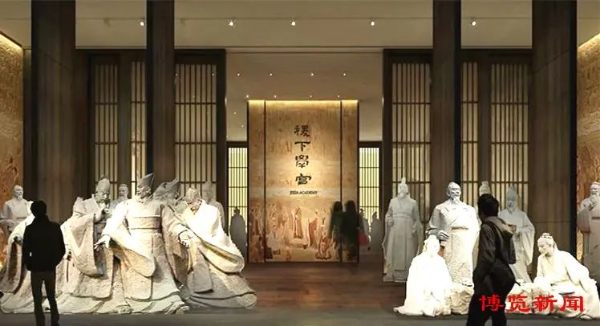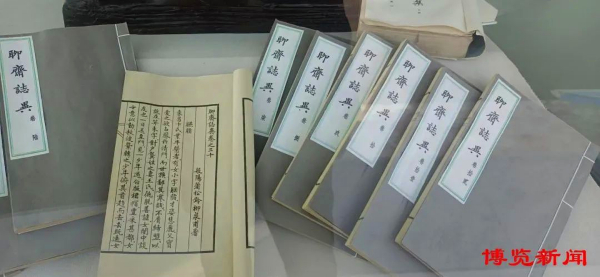
As the ancient capital of the state of Qi, Zibo in East China's Shandong province has a long history and a rich culture.
In the Spring and Autumn Period (770-476 BC) and the Warring States Period (475-221 BC), the city was one of the most prosperous in China. Many cultural relics and historic sites, including ancient chariots, funeral horses pit, weapons, vessels and chimes, were found in this city.

The Jixia Academy in Linzi district of Zibo is an unprecedented feat in the history of Chinese education. [Photo/WeChat account: zibofabu2014]
When it comes to Qi culture, Chen Yan, a Chinese dramatist and novelist best known for his novel The Protagonist, which won the 10th Mao Dun Literature Prize in 2019, has a lot to say.
Chen is especially interested in two well-known books: Strange Tales from a Chinese Studio written by Pu Songling (1640-1715) and The Art of War written by Sun Wu (545-470 BC). Both writers were natives of Zibo.

Strange Tales from a Chinese Studio are written by Pu Songling. [Photo/WeChat account: zibofabu2014]
Comprising nearly 500 "marvelous tales", Pu's book features ghosts, fox spirits, immortals, demons, young scholars and legendary beauties.
Chen said that Strange Tales from a Chinese Studio is one of the books he loves the most, and that he reads it wherever he goes.
He pointed out that the book has characters that are well portrayed, while the language used in is fluent and vivid. In addition, the structure and intricate plot are a good reference for writers of later periods, he added.
With regard to The Art of War by Sun Wu, also known as Sun Tze, a Chinese military strategist, Chen said that the book contains interesting insights into ways to avoid war, and that Sun's military thinking is more important than his philosophical ideas.